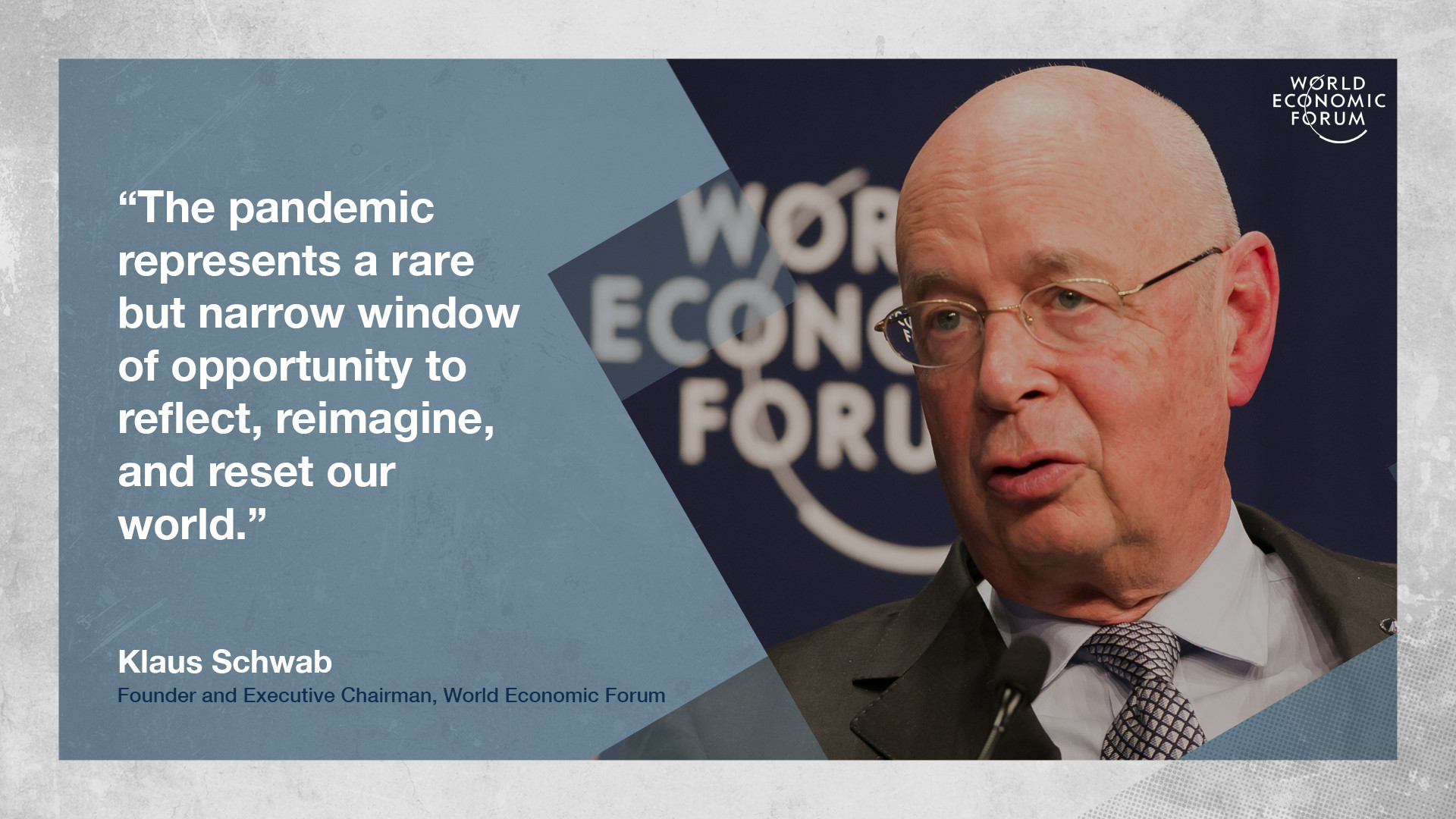Hablando de suiza, hace muy poco, el 3 de Junio, Klaus Schawb fundador y director del World Economic Forum abrio una mesa de conversacion promovida tambien por la familia Real inglesa (Carlos de Gales), con empresarios y economistas de todo el mundo sobre la nueva agenda para el próximo foro de Davos el 2021, el nombre
"The Great Reset", que plantea la necesidad de estructurar una nueva economia para un mundo mas sustentable, que se haga cargo de los problemas sociales y de la huella ecologica en nuestro planeta.
En esta agenda creada en terminos de una sociedad Post-Covid lo que se plantean son 3 componentes:
mover el mercado hacia uno que promueva beneficios mas justos para la sociedad, segundo
enfocar las inversiones en objetivos compartidos basados en la equidad y la sustentabilidad y tercero,
dirigir las innovaciones de la 4ta revolucion industrial para promover el bien publico.
Aqui en mas detalle parte de la carta de Klaus Schawb:
Clearly, the will to build a better society does exist. We must use it to secure the Great Reset that we so badly need. That will require stronger and more effective governments, though this does not imply an ideological push for bigger ones. And it will demand private-sector engagement every step of the way.
The Great Reset agenda would have three main components:
The first would steer the market toward fairer outcomes. To this end, governments should improve coordination (for example, in tax, regulatory, and fiscal policy), upgrade trade arrangements, and create the conditions for a “stakeholder economy.” At a time of diminishing tax bases and soaring public debt, governments have a powerful incentive to pursue such action.
Moreover, governments should implement long-overdue reforms that promote more equitable outcomes. Depending on the country, these may include changes to wealth taxes, the withdrawal of fossil-fuel subsidies, and new rules governing intellectual property, trade, and competition.
The second component of a Great Reset agenda would ensure that investments advance shared goals, such as equality and sustainability. Here, the large-scale spending programs that many governments are implementing represent a major opportunity for progress. The European Commission, for one, has unveiled plans for a €750 billion ($826 billion) recovery fund. The US, China, and Japan also have ambitious economic-stimulus plans.
Rather than using these funds, as well as investments from private entities and pension funds, to fill cracks in the old system, we should use them to create a new one that is more resilient, equitable, and sustainable in the long run. This means, for example, building “green” urban infrastructure and creating incentives for industries to improve their track record on environmental, social, and governance (ESG) metrics.
The third and final priority of a Great Reset agenda is to harness the innovations of the Fourth Industrial Revolution to support the public good, especially by addressing health and social challenges. During the COVID-19 crisis, companies, universities, and others have joined forces to develop diagnostics, therapeutics, and possible vaccines; establish testing centers; create mechanisms for tracing infections; and deliver telemedicine. Imagine what could be possible if similar concerted efforts were made in every sector.
The changes we have already seen in response to COVID-19 prove that a reset of our economic model is possible. Professor Klaus Schwab outlines how to achieve it.

www.weforum.org






 , cual podría ser un futuro/eventual problema?
, cual podría ser un futuro/eventual problema?